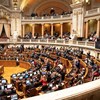Cuts of electricity and water. Unbreathable air from the fires on the islands. Record of infections of Covid . Shootings and uncontrolled homicides. Runaway prices. The closing of 2021 showed the politics almost powerless in the face of problems that pile up and have no solution in the short term , and exposed a leadership embroiled in disputes difficult to decode by society. Before 2023, which appears as the great objective in all political camps, twelve months appear where the focus will be concentrated on management, in which an exhausted citizenry will wait for answers. Until now, the pandemic was the great argument that governments clung to to justify, rightly or wrongly, both the failures and the unforced errors . That reel ran out of thread: in addition to distributing seats in Congress and the Council, the society evaluated the current rulers in their first electoral examination for the promises they made in 2019: Alberto Fernández, turn on the economy; Omar Perotti, guaranteeing peace and order; Pablo Javkin, moving towards a more orderly and integrated city.


Fernández, Perotti and Javkin, protagonists of a year in which citizens await answers
The faces of the State
However, beneath the surface of the disputes between governments and powers lies the question of the State , that complex web of organisms that exhibit greater or lesser capacity to fulfill their part of the contract. social and guarantee, as the case may be, public goods such as macroeconomic stability, security, education, health, housing and a long etcetera. In a recent interview with this newspaper, the political scientist Pablo Touzon warned that the social containment dam built by the political leadership after the outbreak of 2001 is cracking . It is approaching the worst of worlds: the State does not leverage development, but the mesh of social containment is increasingly perforated. A report from the Center for Research and Social Action (Cias) and Fundar (which can be downloaded from here ) states that the difficulties to combat poverty in Argentina do not derive from insufficient public spending: Argentina is the second country in Latin America that invests the most in social protection , indicate the researchers Andrés Schipani, Rodrigo Zarazaga and Lara Forlino. More than the size of social spending, specialists warn, the problem is composition. And they suggest three proposals: segmenting non-contributory family allowances, a youth employment plan, and a plan to promote the integration of cooperative plans with the formal economy. A zoom to the province shows the solid and weak flanks of the state of Santa Fe and Rosario. The same State that could not prevent the 241 crimes in the city guaranteed one of the highest vaccination rates in the country, which allowed Covid cases to be, for now, four times less in Santa Fe than in Córdoba, a province with almost the same population. Curiously, as the journalist Leo Graciarena reported in the last edition of 2021 of La Capital, the equation is reversed in homicides: Córdoba capital registered 51 murders this year, almost five times less than Rosario.
Insecurity exposes the weakest flank of the Santa Fe state
Short wick
Meanwhile, at all levels politicians began to move their chips . Some moves – photos, statements – seem premature, more so than when neither the contours of the board nor the players are clear. Several conflicts on the national and provincial political scene -such as those that arose around the 2022 budget- are driven above all by the positioning of leaderships and tribes for 2023. Eventually, the problem is not the conflict itself -something inherent in politics, which supposes the clash of projects and interests- but stagnation , the permanent turning in the same place . If since classical Greece a distinction is made between the agonal dimension of politics -the struggle- and the architectural aspect, Argentine and Santa Fe politicians show up to now to be better combatants, and demolitioners, than builders. Meanwhile, society is emitting signals. In a column published last week in the newspaper La Nación, the consultant Guillermo Oliveto warned that 2022 will be a fragile year, crossed by three factors: the virus, the daily economy and social humor. “The wick is short”, synthesized the consumer specialist. The problem is not the conflict itself, inherent in politics, but stagnation The problem is not the conflict itself, inherent in politics, but stagnation The protests over the murder of the young architect Joaquín Pérez and, further back in time, the spontaneous cacerolazos in different parts of the city due to power cuts reinforce what Oliveto in his field work: there is hypersensitivity in the street. One of the founders of contemporary political science, the American David Easton, depicted the political system as a machine that feeds on demands and supports from society and produces public policies, based on binding decisions for all members of the community. If it fails to process the lawsuits, Easton warns, the system enters a turbulent zone and crises are triggered. Before reaching that point, politics -of the Executive, the Legislative and the Judiciary- have to give an answer: enlighten and light the way .
Note: This article have been indexed to our site. We do not claim legitimacy, ownership or copyright of any of the content above. To see the article at original source Click Here













